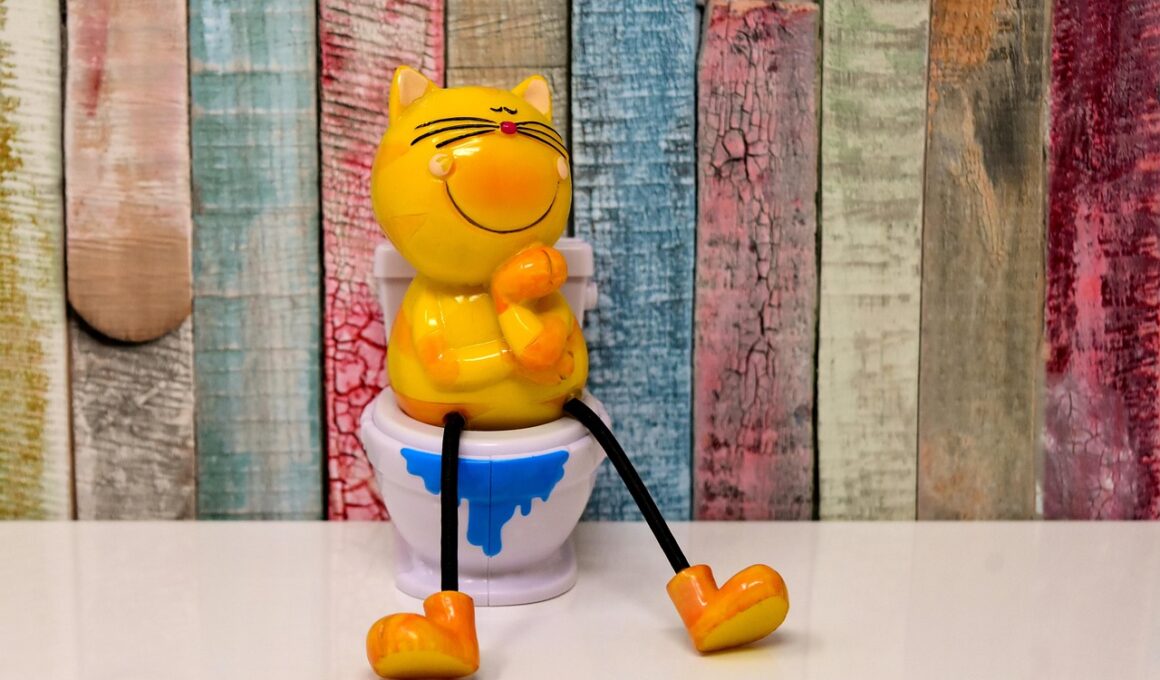How to Discourage Your Kitten from Playing in the Litter Box
When you bring home a kitten, the process of litter box training is essential for both you and your furry friend. But sometimes, kittens develop habits that can lead to challenges, particularly with playing in the litter box. It can be a playful and mischievous activity for a kitten, but it’s important to address this behavior to keep them safe and promote proper hygiene. Understanding why your kitten is motivated to play in the litter box can help you more effectively discourage this behavior. Kittens are naturally curious and playful creatures, and they often see the litter box as an interesting environment filled with various textures and scents. However, it’s crucial to redirect this behavior early on. This can help establish boundaries and ensure that your kitten associates the litter box solely with its intended purpose. In this guide, we will explore several effective strategies that can help deter your kitten from using the litter box as a play area. These approaches can help create a harmonious environment for both you and your pet.
Creating an Appropriate Environment
One of the first steps in discouraging your kitten from playing in the litter box is to create an appropriate environment for them to explore and play safely. You can start by ensuring that the litter box is in a quiet and private area, away from distractions. This will help your kitten recognize its primary purpose without added temptations to play. Additionally, consider providing alternative play spaces throughout your home. Offer a variety of engaging toys that can capture your kitten’s attention, like feather wands, crinkle balls, or interactive puzzles. Rotating these toys regularly can keep their interest piqued and reduce the likelihood of them seeking entertainment in the litter box. Creating designated play areas with climbing trees, scratching posts, and soft blankets can further enhance their enjoyment outside the box. By giving your kitten ample opportunities to engage with various toys and activities, they will be less inclined to view the litter box as their only source of play, promoting healthier habits.
Another effective method to discourage your kitten from playing in the litter box is to make the box less appealing to explore. This could involve changing the type of litter you use or limiting access to the box only for necessary bathroom uses. If your kitten clearly enjoys digging in the litter, you might want to try using a type of litter that has a texture or scent that they do not find as enticing. One option is to switch to a non-clumping litter or try using a crystal-based litter that might feel different for their paws. Keep in mind that kittens often prefer softer surfaces, so it’s important to experiment with various types to find the one that your kitten prefers while simultaneously deterring their playful tendencies. Additionally, ensure the litter box is cleaned regularly, as a dirty box may encourage exploratory behavior that can turn into playtime. The cleaner the box is, the less likely they will be tempted to dig around and play in it.
Establishing a Routine
Establishing a consistent routine can have supportive benefits for both you and your kitten. By introducing a regular schedule for feeding and playtime, you can create a structured day that minimizes the risk of your kitten turning to the litter box out of boredom or excess energy. Kittens tend to have bursts of energy, so incorporating short play sessions throughout the day can help channel that energy in a more productive manner. Aim for at least two distinct play sessions a day, lasting around 15 minutes each, using interactive toys to stimulate their mind and body. In addition to playtime, facilitating a designated time for litter box usage can help them learn the appropriate times to access the box. Young kittens may not completely grasp when to go, so keeping consistent feeding times will contribute to regular bathroom habits. Monitoring their habits can also help you identify when they might need to use the litter box, reducing the tendency to play in it.
Another crucial aspect of addressing litter box playfulness is understanding your kitten’s behavior and body language. Experiencing a surge of excitement before bathroom usage might indicate that your kitten needs to go, but blurred lines can cause confusion with exploratory play. Observing your kitten closely can enable you to address their needs swiftly, reinforcing successful behavior without allowing for playful distractions. Rewarding your kitten with treats and positive reinforcement when they use the litter box appropriately can also promote a healthy association with its function. It’s essential to be patient as your kitten learns; accidents and misunderstandings will happen. Ensure that the litter box remains a safe space for them, and avoid scolding your kitten for using it as a play zone. Instead, gently redirect them if you catch them engaging in inappropriate behavior. Providing a loving and understanding response will make a positive difference and help reinforce the appropriate use of the litter box.
Using Deterrents
Utilizing deterrents can also be an effective strategy when it comes to keeping your kitten from playing in the litter box. Commercial pet-safe sprays designed to deter animals from certain areas can be applied around the box’s perimeter to discourage exploration. However, it’s critical to ensure that any products you use are safe for pets. You can also consider placing a lid or cover on the litter box if your kitten is particularly mischievous. This will make it difficult for them to access the litter and play, but the trade-off is that it may also discourage them from using the box altogether. Monitor their adaptation to any modifications you make to the litter area. If your kitten continues to display signs of interest in playing with the litter, adjusting the types of distractions in your home can also positively impact their natural curiosity. By providing alternative play options and making the litter box less exciting, you can establish boundaries that help your kitten understand its intended purpose.
Lastly, remember that patience and consistency are essential in training your kitten to discourage distinctly playful behaviors around the litter box. Instilling appropriate habits takes time, often differing between each kitten’s personality and disposition. Staying consistent with your reinforcement strategies and ensuring that your kitten is rewarded for proper use of the litter box will help them learn. If you find that the behaviors persist despite your best efforts, consider consulting with a veterinarian or animal behaviorist, who may provide valuable insights and further recommendations tailored to your specific situation. Addressing any underlying concerns early on will ensure that both you and your kitten can enjoy a harmonious and stress-free experience. In summary, applying these strategies can reshape your kitten’s understanding of the litter box while promoting proper usage and a healthy environment for all.
Combining all these strategies and methods can truly help you in your goal to discourage litter box playfulness from your kitten. Ensure that your kitten’s environment is engaging and safe, allowing plenty of fun alternatives while keeping the litter box designated for its use. With time, attention, and consistent training, your kitten can grow to respect its litter box as a bathroom rather than a play area. Following these steps will help ensure a smooth transition and better health for your pet. Being proactive in establishing boundaries and providing adequate stimulation will reduce your kitty’s inclination to use the litter box as a fun space to explore, improving their overall behavior in the long run. As a loving pet owner, your patience will pave the way for positive growth as your pet juggles their playful nature with appropriate habits. Emphasizing such an approach will strengthen your bond with your furry companion, contributing to their well-being and enriching your shared lives. The journey of training a playful kitten may challenge you, but it also results in rewarding experiences and fulfilling companionship.


